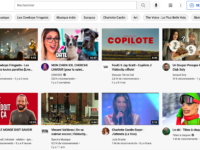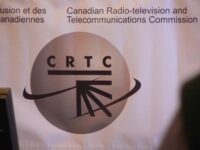My series on Bill C-11’s foundational faults has covered jurisdictional over-reach, the implications of treating all audio-visual content as a “program” subject to CRTC regulation, as well as the flaws and harms of the discoverability provisions. While the faults thus far focus on provisions contained in the bill, this post examines a critical aspect of broadcast and cultural policy that the government has failed to address. The bill purports to support “Canadian stories” but the current system often means that certified Cancon has little to do with Canada and fails to meet those objectives. Case in point: the certification of Gotta Love Trump, a film primarily comprised of pro-Trump clips that include Trump’s photographer, a former Apprentice contestant, Roger Stone, Candace Owens, and a cast of others with scarcely anything resembling Canadian content.
 Articles by: Michael Geist
Articles by: Michael Geist
The Law Bytes Podcast, Episode 121: The Law Is No Longer Fit For Purpose – My Appearance Before the ETHI Committee on Canadian Privacy and Mobility Data
The House of Commons Standing Committee on Access to Information, Privacy and Ethics spent much of February conducting a study on the collection and use of mobility data by the Government of Canada. The study stems from reports that the Public Health Agency of Canada worked with Telus and BlueDot, an AI firm, to identify COVID-19 trends based on mobility data with questions about whether there was appropriate disclosures, transparency and consent from the millions of Canadians whose data may have been collected. I appeared before the committee toward the end of the study, emphasizing that while the activities were arguably legal, something still does not sit right with many Canadians. This week’s Law Bytes podcast goes inside the hearing room for my appearance, where I made the case that Canada’s outdated privacy laws are no longer fit for purpose.
Bill C-11’s Foundational Faults, Part Four: Why the Discoverability Rules Will Harm Canadian Creators and Risk Millions in Revenues
My post on why Bill C-11’s discoverability rules are a flawed solution in search of a problem demonstrated that there is little incentive for Internet platforms to make it difficult for Canadians to find Canadian content. Indeed, experience with both Netflix and Youtube suggest that there is every reason to ensure the availability of such content and to recommend it where users show an interest. Yet proponents of discoverability regulations may still argue that even if they are unlikely to accomplish much, what is the harm in trying? The simple answer is that the regulated discoverability requirements are likely to harm Canadian creators, resulting in lost audiences and potentially millions in lost revenues.
Bill C-11’s Foundational Faults, Part Three: Why the Discoverability Rules Are a Flawed Solution in Search of a Problem
My prior posts on the foundational faults in Bill C-11 focused on the virtually limitless reach of the CRTC’s jurisdictional power over audio-visual services and the risks of treating all audio-visual content as a “program” subject to potential regulation. This post – the first of two on the subject – explains why the discoverability rules that purport to better promote Canadian content are a flawed solution in search of problem that will actually make things worse for Canadian creators.
The discoverability provision, which grants the CRTC the power to establish discoverability requirements as a condition on Internet services, states at Section 9.1(1):
The CRTC Provides an Advance Preview of Bill C-11 Regulation: Pretty Much Any Service, Anywhere, Any Terms and Conditions
The Canadian Radio-television and Telecommunications Commission issued a notable decision last month involving the creation of an annual digital media survey that likely provides an advance preview of how it will address Bill C-11 if it becomes law. That is a cause for concern, since the Commission apparently sees few limitations in its powers despite obvious doubts that it is operating within the boundaries of existing law. Those powers, which will be increased should Bill C-11 be enacted, lead to its position that any broadcasting from anywhere in the world is subject to its jurisdiction so long as there is a Canadian nexus to the activities. There is no requirement that the service be located in Canada in order to qualify and little practical guidance on what constitutes a Canadian nexus.











